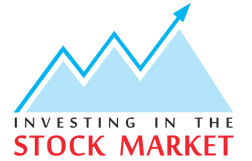Deciding what shares to buy
If everyone knew which companies would do well, we would all be
millionaires. The kind of stock you should invest in may depend on many
factors.
 It is important to invest in a way that is consistent with your
investment goals and investment personality. Your portfolio should be
made up of shares that can attain the performance goals that you set for
the shares in your portfolio. It is important to invest in a way that is consistent with your
investment goals and investment personality. Your portfolio should be
made up of shares that can attain the performance goals that you set for
the shares in your portfolio.
Let's now take a look at the types of shares you may come across in
the market, based on factors such as return, value, growth potential and
risk.
Income shares
As the name suggests, these shares provide steady income streams for
investors where companies pay regular dividends compared to others. When
buying these shares the important considerations are, the tax applicable
on the dividend and the cost of the shares in comparison to the net
dividend paid.
Value shares
Value shares reflect established companies with highly successful
businesses and a strong financial position. Investors tend to think of
value shares as bargains as they appear inexpensive relative to the
earnings of the company and other fundamental factors. Value shares tend
to have low price-to-earnings ratios and high dividend yields.
Long-term investors prefer these shares which they often hold over
long periods, until the true value of the share begins to emerge in the
form of dividends or an increase in the price of the share.
Growth shares
Growth shares generally represent companies that have a strong and
substantial growth potential. Generally, the progression of these
companies is in line with the country's economic growth. A growth
company reinvests in various projects which can facilitate further
growth.
Thus, it typically pays little to no dividends to shareholders.
Investors who invest in these shares devote their current income
expecting to receive high returns at a later date.
Cyclical shares
Shares which follow general economic trends and business cycles fall
into this category. These shares are issued by companies which are
sensitive to business cycles and whose performance is closely tied to
general economic trends. Prices of cyclical shares can be volatile as
they follow market expectations of how the general economy would perform
or other conditions.
For example, during bad weather phases, the production in the
plantation sector decreases and the off-season in the tourism sector
generates less income in the hotel industry. Based on such factors the
value of shares may rise or fall.
Defensive shares
These are shares that remain stable even under strained economic
cycles. Unlike cyclical shares these are not affected by general
economic trends. During all phases of the economy, whether it is
recession or expansion, companies that provide essentials needed by
consumers such as food, fuel, gas and medicine are likely to remain
stable.
Selecting shares
The advice of an investment professional will help identify the share
types discussed. If you want to go at it alone, educate yourself further
using CSE publications or resources on the CSE Educational Portal
online.
You can also use the following as sources for information:
Stockbroker websites and publications, newspapers and business
magazines, business programs on TV and radio, websites and publications
of data vendors such as Reuters, Bloomberg and Telekurs.
Companies listed on the CSE are categorised into 10 different
sectors, which are further classified into 21 additional industry
groups. After having identified which type of share and industry you
would buy, you can go on to individual share selection.
When considering buying shares in a particular company, you must
first do research on that company. As we stated in the column two weeks
ago, talk to your adviser and or do your own research that can give you
a good understanding of the company's activities and its business
situation.
Be wary of speculative shares
When you explore the market and do research for share selection, be
wary of companies which lack financial stability or a good track record
in earnings and dividends but appear to be focused on delivering growth
fast. If a company's publicised future growth is not supported by
fundamentals, it can be classified as a high risk investment. |

